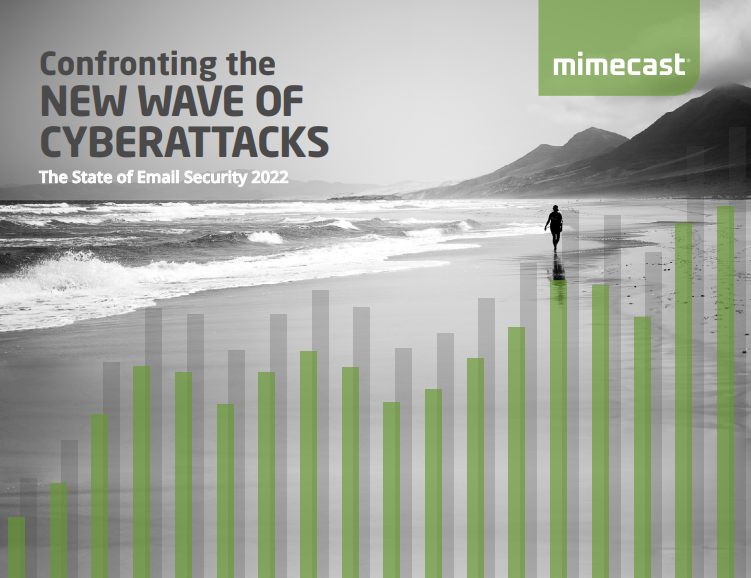LockBit 2.0 ransomware disguised as PDFs distributed in email attacks
Researchers have urged vigilance over compressed attachments sent under false pretenses


Researchers in Korea have identified threat actors targeting companies with emails claiming copyright infringement that contain ransomware.
AhnLab Security Emergency Response Center (ASEC) has collected evidence of emails sent to companies with a password-protected compressed file attached, within which lies Lockbit.20 ransomware disguised with a PDF file icon.
RELATED RESOURCE

Although the research pointed to an active campaign by threat actors within the Republic of Korea, the widespread nature of Lockbit 2.0 means there is real potential that the same methods could soon be used to target firms in Europe and the US.
In recent attacks, emails have been spotted carrying a file that appears to contain the images of licensed content in dispute. Such emails may contain the name of actual artists, to add to their legitimacy, and follow a similar scam in which such files were passed off as resumes.
If the user opens the attached file, which has a PDF file icon disguised as a Lockbit executable, it will execute a series of processes to prevent file recovery and register itself to the system registry to keep itself running continuously. The user will quickly find their open processes terminating, and files changing to become unopenable and bear a red letter ‘B’ icon.
Lockbit 2.0 works to encrypt all data, local or externally connected, that doesn’t pertain to core system functions. Files are also uploaded to a server controlled by the attackers, who then a ransom note in the form of a text file urging the victim to pay them money. Of course, there is no way to guarantee that any deal made with the attackers would be honoured, so this is never an advised route for recovering one's data.
Of all ransomware, Lockbit 2.0 poses one of the greatest specific threats to businesses right now, with cyber security advisor NCC Group advising in a recent blog post that across May, Lockbit 2.0 accounted for 40% of ransomware attacks. The Federal Bureau of Investigation (FBI) also released a report earlier this year detailing the specific risks posed by the threat actor and noted the only targets it does not infect are those using Eastern European languages for their systems.
Get the ITPro daily newsletter
Sign up today and you will receive a free copy of our Future Focus 2025 report - the leading guidance on AI, cybersecurity and other IT challenges as per 700+ senior executives
Smaller businesses are most likely to be affected by this method of attack, as they often lack dedicated legal teams who would be able to identify the legitimacy of the emails. Additionally, employees in smaller businesses are less likely to have received anti-phishing training.
“Lockbit 2.0 has fast cemented its place as the most prolific threat actor of 2022,” stated NCC’s global lead for strategic threat intelligence, Matt Hull.
“It is crucial that businesses familiarise themselves with their tactics, techniques, and procedures. It will give them a better understanding of how to protect against attack and the most appropriate security measures to implement.”

Rory Bathgate is Features and Multimedia Editor at ITPro, overseeing all in-depth content and case studies. He can also be found co-hosting the ITPro Podcast with Jane McCallion, swapping a keyboard for a microphone to discuss the latest learnings with thought leaders from across the tech sector.
In his free time, Rory enjoys photography, video editing, and good science fiction. After graduating from the University of Kent with a BA in English and American Literature, Rory undertook an MA in Eighteenth-Century Studies at King’s College London. He joined ITPro in 2022 as a graduate, following four years in student journalism. You can contact Rory at rory.bathgate@futurenet.com or on LinkedIn.
-
 Bigger salaries, more burnout: Is the CISO role in crisis?
Bigger salaries, more burnout: Is the CISO role in crisis?In-depth CISOs are more stressed than ever before – but why is this and what can be done?
By Kate O'Flaherty Published
-
 Cheap cyber crime kits can be bought on the dark web for less than $25
Cheap cyber crime kits can be bought on the dark web for less than $25News Research from NordVPN shows phishing kits are now widely available on the dark web and via messaging apps like Telegram, and are often selling for less than $25.
By Emma Woollacott Published
-
 ‘Phishing kits are a force multiplier': Cheap cyber crime kits can be bought on the dark web for less than $25 – and experts warn it’s lowering the barrier of entry for amateur hackers
‘Phishing kits are a force multiplier': Cheap cyber crime kits can be bought on the dark web for less than $25 – and experts warn it’s lowering the barrier of entry for amateur hackersNews Research from NordVPN shows phishing kits are now widely available on the dark web and via messaging apps like Telegram, and are often selling for less than $25.
By Emma Woollacott Published
-
 Hackers are targeting Ivanti VPN users again – here’s what you need to know
Hackers are targeting Ivanti VPN users again – here’s what you need to knowNews Ivanti has re-patched a security flaw in its Connect Secure VPN appliances that's been exploited by a China-linked espionage group since at least the middle of March.
By Emma Woollacott Published
-
 Healthcare systems are rife with exploits — and ransomware gangs have noticed
Healthcare systems are rife with exploits — and ransomware gangs have noticedNews Nearly nine-in-ten healthcare organizations have medical devices that are vulnerable to exploits, and ransomware groups are taking notice.
By Nicole Kobie Published
-
 Alleged LockBit developer extradited to the US
Alleged LockBit developer extradited to the USNews A Russian-Israeli man has been extradited to the US amid accusations of being a key LockBit ransomware developer.
By Emma Woollacott Published
-
 February was the worst month on record for ransomware attacks – and one threat group had a field day
February was the worst month on record for ransomware attacks – and one threat group had a field dayNews February 2025 was the worst month on record for the number of ransomware attacks, according to new research from Bitdefender.
By Emma Woollacott Published
-
 CISA issues warning over Medusa ransomware after 300 victims from critical sectors impacted
CISA issues warning over Medusa ransomware after 300 victims from critical sectors impactedNews The Medusa ransomware as a Service operation compromised twice as many organizations at the start of 2025 compared to 2024
By Solomon Klappholz Published
-
 Broadcom issues urgent alert over three VMware zero-days
Broadcom issues urgent alert over three VMware zero-daysNews The firm says it has information to suggest all three are being exploited in the wild
By Solomon Klappholz Published
-
 Nakivo backup flaw still present on some systems months after firms’ ‘silent patch’, researchers claim
Nakivo backup flaw still present on some systems months after firms’ ‘silent patch’, researchers claimNews Over 200 vulnerable Nakivo backup instances have been identified months after the firm silently patched a security flaw.
By Solomon Klappholz Published